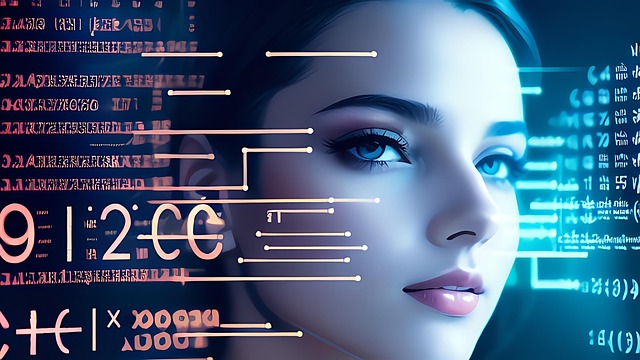The evolution of AI assistants has been marked by significant advancements from rule-based systems to sophisticated digital helpers. Driven by natural language processing (NLP) and machine learning (ML), modern AI assistants can understand complex inputs, adapt to individual preferences, and provide personalized assistance, revolutionizing interactions with technology. Future developments aim to enhance their problem-solving skills, emotional intelligence, and decision-making abilities. These assistants are transforming daily life by automating tasks, offering tailored recommendations, and integrating seamlessly with smart home devices. Ethical considerations, including privacy, data security, and societal impact, are crucial for responsible AI assistant development. As these technologies mature, they promise deeper integration, enhancing connections, productivity, and well-being across various aspects of life.
AI assistants are no longer mere tools; they’re evolving into intuitive, digital helpers that transform daily life. From basic command execution to intelligent, context-aware interactions, AI technology is advancing at a rapid pace. This article explores the rise of AI assistants, their current capabilities, and how user interaction and personalization enhance user experiences. We delve into ethical considerations, predict future prospects, and highlight the profound impact on our daily routines and productivity. Discover how these digital helpers are revolutionizing the way we live and work.
- The Rise of AI Assistants: From Basic to Intelligent
- Understanding the Current Capabilities of AI Technology
- User Interaction and Personalization: Enhancing User Experience
- Ethical Considerations in AI Assistant Development
- Future Prospects: Where are AI Assistants Headed?
- The Impact on Daily Life and Productivity
The Rise of AI Assistants: From Basic to Intelligent

The evolution of AI assistants is a remarkable journey from simple, rule-based systems to sophisticated, intelligent digital helpers. Initially, AI assistants were limited to performing predefined tasks, following a set of programmed instructions. These early versions could handle basic queries and perform straightforward operations, but their capabilities were somewhat restricted.
With advancements in natural language processing (NLP) and machine learning, AI assistants have become more intuitive and adaptable. They can now understand complex user inputs, context, and nuances, allowing for more natural and human-like interactions. Today’s AI assistants can learn from user behavior, adapt to individual preferences, and provide personalized assistance, marking a significant shift from their basic predecessors.
Understanding the Current Capabilities of AI Technology

AI assistants have come a long way since their early beginnings, evolving from simple rule-based systems to sophisticated tools capable of understanding and generating human language. Today, AI technology powers virtual assistants that can perform a wide range of tasks, from answering queries to scheduling appointments and controlling smart home devices. These assistants utilize advanced techniques like natural language processing (NLP) and machine learning (ML) to interpret user requests accurately and provide contextually relevant responses.
The current capabilities of AI assistants are impressive but still represent just a fraction of their potential. They can engage in conversations, offer personalized recommendations based on user data, and even learn from interactions to improve performance over time. As research progresses and algorithms become more sophisticated, AI assistants are expected to gain enhanced problem-solving skills, emotional intelligence, and the ability to handle complex, nuanced tasks that mimic human decision-making processes.
User Interaction and Personalization: Enhancing User Experience

As AI assistants continue to evolve, their interaction with users becomes increasingly intuitive and personalized. By leveraging machine learning algorithms, these digital helpers can understand user preferences, behaviors, and contexts better than ever before. This level of personalization enhances the overall user experience by providing tailored recommendations, anticipative responses, and seamless integration into daily routines.
For instance, an AI assistant might learn a user’s commutes, favorite music genres, or specific productivity patterns. Armed with this knowledge, the assistant can offer customized suggestions like playing the right music during travel times or scheduling meetings to align with peak focus periods. Such personalization transforms the assistant from a simple tool into a helpful companion, fostering a deeper connection and making everyday tasks more efficient and enjoyable.
Ethical Considerations in AI Assistant Development

As AI assistants become more intuitive and integrated into our daily lives, ethical considerations in their development are paramount. Privacy and data security top the list, as these digital helpers process vast amounts of personal information. Ensuring transparency about data usage and implementing robust security measures to protect user privacy is crucial for building trust. Additionally, AI assistant developers must address biases in algorithms that could lead to discriminatory outcomes, especially when dealing with sensitive tasks like hiring or loan approvals.
Another critical aspect is accountability. As these assistants make decisions or provide recommendations, it’s essential to have mechanisms in place to explain their reasoning and allow users to question and challenge those decisions. Furthermore, the potential impact on employment must be carefully considered, as AI assistants could automate certain tasks, leading to job displacement. Balancing innovation with these ethical factors will ensure that AI assistant development benefits society without causing unintended harm.
Future Prospects: Where are AI Assistants Headed?

As we look ahead, AI assistants are poised to become even more integrated into our daily lives. Future prospects suggest that these digital helpers will evolve to understand and anticipate our needs at a deeper level, leveraging advanced natural language processing and machine learning capabilities. Imagine having an AI assistant that can learn your unique preferences, predict your schedule, and proactively assist you with tasks, from managing your calendar to recommending personalized content.
The horizon for AI assistants includes enhanced voice recognition, improved context awareness, and better integration with smart home devices. This evolution will enable seamless interactions, making technology more accessible and user-friendly. With continuous advancements, we can expect AI assistants to become indispensable tools in homes, workplaces, and beyond, shaping a future where intuitive digital helpers facilitate our connections, productivity, and overall well-being.
The Impact on Daily Life and Productivity

The evolution of AI assistants into intuitive digital helpers is transforming daily life and productivity in significant ways. These advanced technologies are now capable of understanding natural language, context, and user preferences, making them invaluable tools for tasks ranging from scheduling appointments to managing smart homes. With their ability to anticipate needs and provide personalized assistance, AI assistants save users precious time and effort, enabling them to focus on more complex and creative endeavors.
In the realm of productivity, AI assistants enhance workflow efficiency by automating mundane tasks, such as data entry or email filtering. This not only boosts overall output but also reduces cognitive load, allowing individuals to allocate their mental resources to more critical and strategic activities. As these digital helpers continue to evolve, they promise an even more seamless integration into daily routines, further revolutionizing how we approach work and personal responsibilities.
